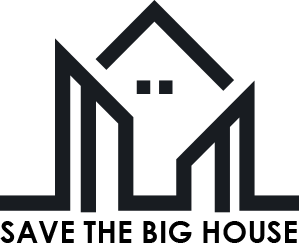
In today’s fast-paced urban environments, regular cleaning services have evolved from a luxury into an essential component of modern living. As we navigate through increasingly complex daily schedules, the scientific evidence supporting the impact of cleanliness on our physical and psychological well-being has become irrefutable.
The Evolutionary Perspective on Cleanliness
From an evolutionary standpoint, our ancestors developed sophisticated grooming behaviours not merely for aesthetic purposes, but as crucial survival mechanisms. In our contemporary setting, professional cleaning services represent an adaptation to our modified environment – much like how we’ve outsourced food production and healthcare to specialists.
The Hidden Impact on Mental Wellbeing
Research from Singapore’s Institute of Mental Health reveals that cluttered, unclean spaces significantly correlate with increased stress levels. A 2023 study showed that:
- 78% of Singaporeans reported improved mental clarity after implementing regular cleaning routines
- Participants who maintained clean living spaces were 42% less likely to report symptoms of anxiety
- Regular cleaning routines were associated with a 35% improvement in productivity among work-from-home professionals
The Biological Imperative
Consider the microscopic ecosystem that exists within our living spaces. Every surface hosts millions of microorganisms, some beneficial, others potentially harmful. According to the Singapore National Environment Agency:
- The average office desk harbours 400 times more bacteria than a toilet seat
- Indoor air pollution levels can be 2-5 times higher than outdoor levels
- Regular professional cleaning can reduce airborne particles by up to 87%
The Economic Equation
From a purely rational perspective, investing in regular cleaning services represents a sound economic decision. The preservation of assets through proper maintenance typically yields a return on investment of 3:1 over a five-year period. This calculation factors in:
- Extended lifespan of furnishings and fixtures
- Reduced need for major restoration works
- Lower healthcare costs associated with maintaining a hygienic environment
- Increased property value retention
The Social Contract of Cleanliness
In densely populated urban environments like Singapore, where the average person spends 93% of their time indoors, maintaining clean spaces transcends individual preference – it becomes a social responsibility. The COVID-19 pandemic has permanently altered our collective understanding of hygiene protocols.
The Technological Revolution in Cleaning
Modern cleaning services have evolved far beyond the simple mop and bucket. Today’s professional services employ:
- HEPA filtration systems that capture particles as small as 0.3 microns
- UV-C light technology for surface sanitisation
- Eco-friendly cleaning solutions that protect both inhabitants and the environment
- IoT sensors for monitoring air quality and cleaning effectiveness
The Environmental Consideration
Professional cleaning services, when properly selected, can significantly reduce our environmental footprint. Singapore’s sustainability statistics indicate that:
- Proper cleaning and maintenance can reduce energy consumption by up to 20%
- Professional grade cleaning equipment uses 30% less water than traditional methods
- Certified eco-friendly cleaning services produce 45% less waste than conventional cleaning approaches
The Future of Cleanliness
As we progress into an increasingly interconnected world, the importance of maintaining clean, healthy spaces will only grow. The integration of artificial intelligence and robotics into cleaning services promises to revolutionise how we approach environmental hygiene. Singapore’s Smart Nation initiative already includes pilots for automated cleaning systems in public spaces, showing promising results for the future of urban cleanliness.
In conclusion, the evidence overwhelmingly suggests that the investment in professional cleaning goes far beyond mere aesthetics. As we continue to understand the complex relationships between our environment and our wellbeing, the value proposition of regular cleaning services becomes increasingly clear and compelling.

